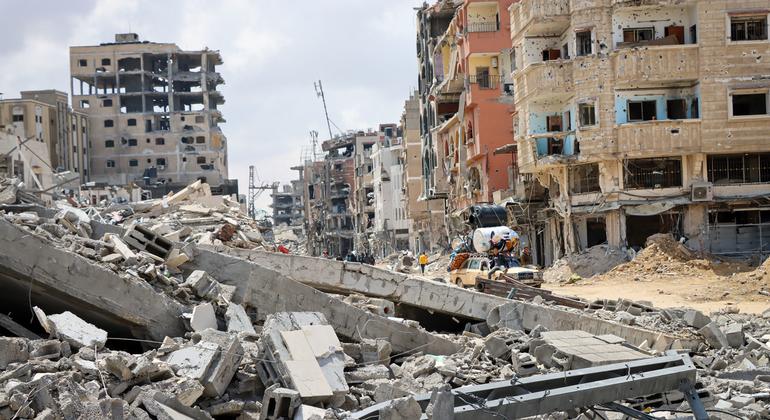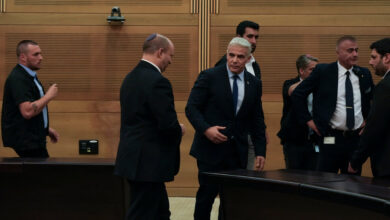UNICEF warns of escalating violence in the Middle East


“Children in many Middle Eastern countries are now facing a harsher reality than ever before: a life shrouded in instability and violence,” UNICEF Regional Director Adele Khodr said in a statement.
Almost every report of the attack has included children among the dead, she said, noting that in less than a year, thousands of people have been killed across the Palestinian Authority, Israel, Lebanon and the occupied Golan Heights.
At the same time, many other children have suffered “injuries that are forever imprinted on their bodies and cause immeasurable harm to their mental health.” Many of these children are also displaced and “live in a state of constant uncertainty and fear.”
The situation threatens to get worse.
However, Ms Khodr warned that the situation for children in the region was at risk of getting worse.
“Any escalation of violence in the region would have grave humanitarian consequences, threatening the lives and well-being of many more children. It would also have a lasting impact on the prospects for peace and stability in the Middle East,” she said.
“Immediate de-escalation is essential to protect the lives and well-being of children, otherwise it would be unconscionable.”
Restrain, protect, de-escalate
UNICEF continues to call on all parties to urgently exercise maximum restraint and protect civilians and the critical services they need, she said.
The United Nations agency and partners continue to be on hand to provide essential services and supplies to support and protect children.
“But what children really need is peace and security, the chance to live in dignity, free from deprivation and fear,” she stressed, “and that starts with de-escalation, a lasting political solution and the promise of a brighter future.”
‘Pain’ in Gaza hospitals
UNICEF also continued to draw attention to the plight of children in Gaza, where the level of devastation, suffering and displacement “is beyond what you can imagine when watching on a TV screen or any digital platform”.
According to Salim Oweis, a media officer of the agency, who recently visited several hospitals in the area.
He said the situation was very crowded, with injured and sick children “everywhere”. Some of the children had chronic illnesses such as cancer or other complex conditions that required specialist care that Gaza’s hospitals did not have.
“You could see children and their families in the hallways, being treated in the hallways, waiting in the hallways. The screaming and the pain. [are] very, very present there,” Mr. Oweis said in an exclusive interview with UN News.
UNICEF together with the World Health Organization (WHO) and the United Nations Palestinian refugees, UNRWAis preparing for a campaign later this month to vaccinate about 500,000 children against polio, a disease that has been recently detected in samples taken from areas in central and southern Gaza.
“However, all of these efforts really depend on access to vaccines and the ability to distribute and vaccinate children anywhere around the Gaza Strip,” he said.
Educational Support
Meanwhile, the UN-backed global fund to support education in emergencies and protracted crises has announced $2 million grant provide children in Gaza with access to quality learning opportunities and mental health services.
Education Cannot Wait (ECW) said the war had left some 625,000 children out of school and more than 370 schools had been damaged in attacks.
Furthermore, even before the current fighting began last October, around three-quarters of children – some 800,000 – had been identified as needing mental health and psychosocial support.
EWC Executive Director Yasmine Sherif said children in Gaza are still facing unimaginable horrors.
She said that while the funding “will facilitate the first steps in restoring mental health and learning services”, it “is just a drop in the bucket among the vast needs in Gaza”.
The 12-month grant will be awarded by the Norwegian Refugee Council (NRC) through its ongoing Better Learning in Palestine Programme, which aims to improve learning conditions for children and youth in Gaza.
ECW has been continuously providing funding for education in the State of Palestine since 2019 and the total funding to date is approximately $36 million.




